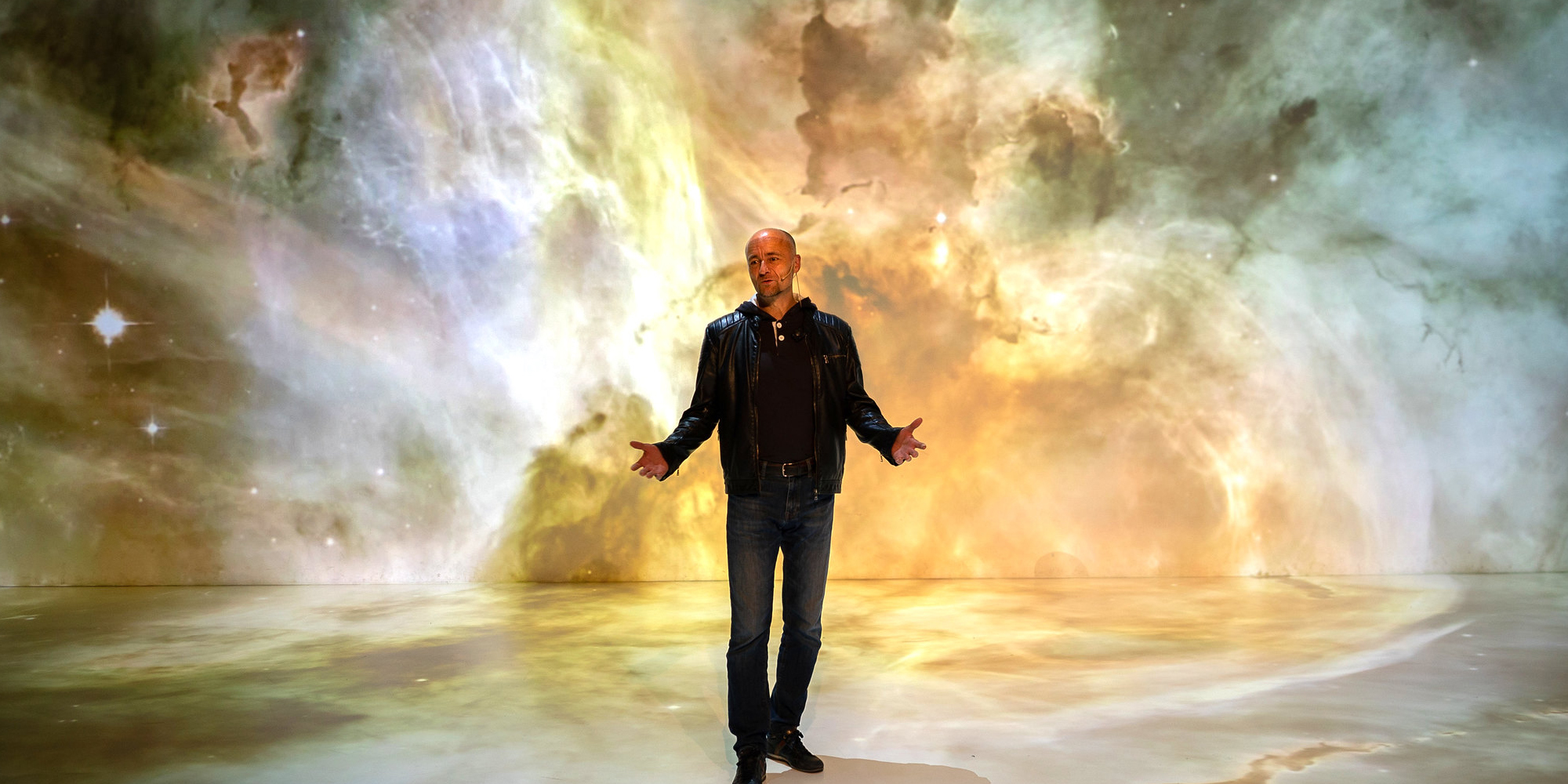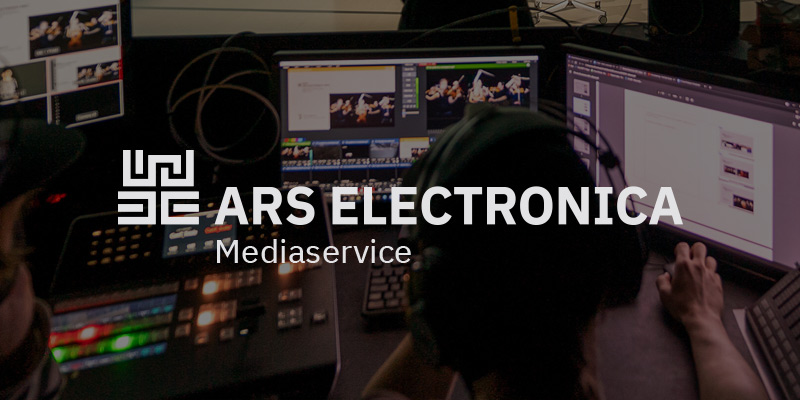Press release as PDF
Ars Electronica Blog
Covid-19 Measurements
(Linz, 12.10.2020) From the inside of our bodies to the most remote corners of our universe, from the smallest nerve cell to gigantic stars 700 times larger than the Sun: Visitors to Deep Space 8K can look forward to two exciting presentations this week. Thursday evening, 15.10.2020, neuroscientist Dr. Manuela Macedonia will give an insight into the connection between the gut and the brain and will explain that this connection not only controls our feeling of hunger, but also our mood and way of thinking. On Saturday afternoon, 17.10.2020, astrophotographer Dietmar Hager invites you on a journey to the constellation of Scorpio, where he will present breathtaking photos and interesting facts about the mythology of this zodiac sign. Note: To ensure a minimum distance of one meter, 40 people are currently allowed to attend the presentations in Deep Space 8K. Please make a reservation at 0732.7272.0 or center@ars.electronica.art.
Deep Space LIVE: The gut-brain axis – how the gut feels and thinks
DO 15.10.2020 / 6:30 p.m. – 8:00 p.m.
With a total surface area of 300-400 m², the intestine is not only by far the largest human organ, it also has 100 million nerve cells. It is becoming increasingly clear that the intestine is an independently functioning organ and communicates actively with the brain via bacteria, unicellular organisms, hormones, neurons and messenger substances. On Thursday, 15.10.2020, neuroscientist Dr.in Manuela Macedonia will give an insight into the connection between the gut and the brain at Deep Space LIVE and tell us that this connection is not only responsible for our feeling of hunger, but also controls our mood and way of thinking.
About Dr. Manuela Macedonia
Dr. Manuela Macedonia is a senior researcher at the Johannes Kepler University Linz. Her work focuses on the development and neurocognitive testing of systems that guide people through learning processes. At the same time, she is working on the neuroscientific foundations of sensorimotor learning in experiments at the Max Planck Institute Leipzig. In addition, she researches the multisensory enrichment of linguistic information and its effects on the memory of young adults.
Deep Space Special: Zodiac signs in the light of science
SA 17.10.2020 / 4:30 p.m. – 5:30 p.m.
Gigantic stars 700 times the diameter of our sun, fascinating globular clusters and colorful nebulae – the constellation of Scorpio has a lot to offer. Saturday, 17.10.2020, astrophotographer Dietmar Hager invites you on a journey into the depths of space – with a special focus on the constellation of Scorpio. In addition to breathtaking images, visitors can expect to learn lots of interesting astronomical facts and take an excursion to the mythological origins of the scorpion.
About Dietmar Hager
Dietmar Hager is a doctor and astrophotographer. He has been involved in astrophotography for over 20 years and publishes photos in international journals and textbooks. He’s been working for the Ars Electronica Center as an astronomical consultant since early 2011.
Deep Space LIVE and Deep Space Special
High-resolution images in 16 by 9 meter format will be combined with expert commentary, entertaining double conferences and musical improvisation. Whether it’s art-historical tracing, space flight, a voyage of discovery into the nanoworld or a LIVE concert – Deep Space LIVE and Deep Space Special stand for enlightening entertainment amidst impressive visual worlds. Admission costs €3. With a valid museum ticket, the visit is free of charge.
Photo:
Manuela Macedonia / Photo credit: Ars Electronica – Robert Bauernhansl / Printversion
Photo:
Dietmar Hager / Photo credit: Ars Electronica – Robert Bauernhansl / Printversion


